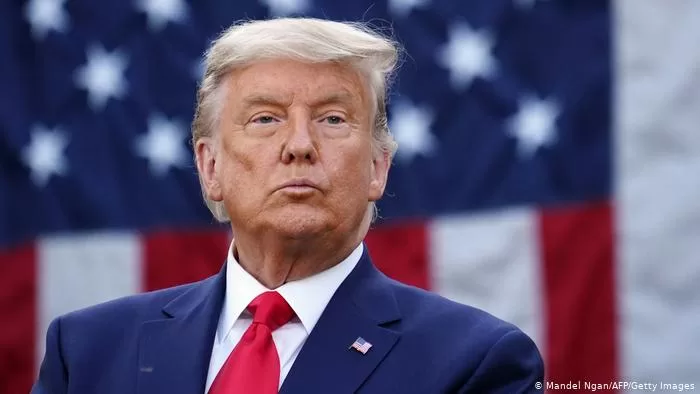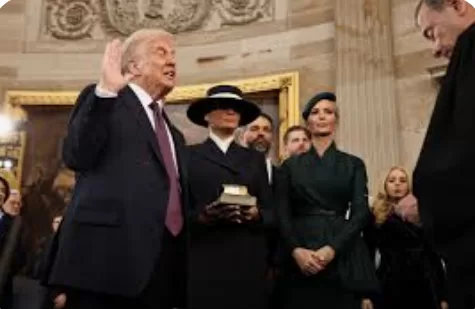United States President, Donald Trump, on Monday granted pardons to over 1,000 individuals involved in the January 6, 2021, Capitol riot and commuted the sentences of key members of the Proud Boys and Oath Keepers.
“These are the hostages,” Trump stated during an address from the Oval Office, referring to those convicted or charged. “Approximately 1,500 for a pardon – full pardon.”
Among those who received commutations are 14 far-right extremists, including Oath Keepers and Proud Boys members, who were charged or convicted of seditious conspiracy.
Trump’s clemency extends to individuals guilty of severe crimes during the Capitol attack, such as assaulting police officers and property destruction, aiming to disrupt the certification of the 2020 election results.
The pardons include high-profile cases like Julian Khater, who admitted to assaulting Capitol Police officer Brian Sicknick with a chemical spray; Devlyn Thompson, who attacked an officer with a baton; and Robert Palmer, who used a fire extinguisher, a wooden plank, and a pole in attacks on police.
The violence on January 6 left over 140 officers injured, directly or indirectly resulted in the deaths of nine people—including five police officers—and became the focal point of the largest criminal investigation in U.S. history.
Prosecutors charged over 1,580 individuals, with roughly 1,270 convictions secured.
While Trump has described January 6 as “a day of love and peace,” video evidence and witness accounts contradict these claims, showing rioters engaging in brutal violence against law enforcement officers.
Craig Sicknick, brother of the late Officer Brian Sicknick, who died following the attack, has condemned Trump’s actions.
“Donald Trump and his loyalists not only celebrate the deadly mob that killed my brother — they are determined to pardon those responsible,” he said in a statement, adding that such pardons are “a betrayal to…all Americans.”
Republican Senator Mike Rounds also criticized the day’s violence, calling it “a very, very bad day for America,” but acknowledged the president’s constitutional authority to issue pardons.
The commutations Trump issued include those for Kelly Meggs, a Florida Oath Keeper sentenced to a decade for seditious conspiracy; Jessica Watkins, who was serving a nearly nine-year sentence for obstructing an official proceeding; and Thomas Caldwell, who organized a weapons transport effort for the Oath Keepers on January 6.
Pardons restore civil rights such as voting and gun ownership and can end probation, though they do not erase convictions.
Commutations, on the other hand, reduce sentences but do not restore rights or forgive the crime.
Despite their legality, Trump’s pardons have faced widespread opposition. Recent polls indicated that the majority of Americans disapprove of granting clemency to January 6 rioters.
A Quinnipiac University poll showed 59% of voters oppose pardons for those convicted and jailed, though 67% of Republican respondents support such measures.
The debate around these pardons continues to highlight divisions in public opinion and political accountability for the events of January 6.









